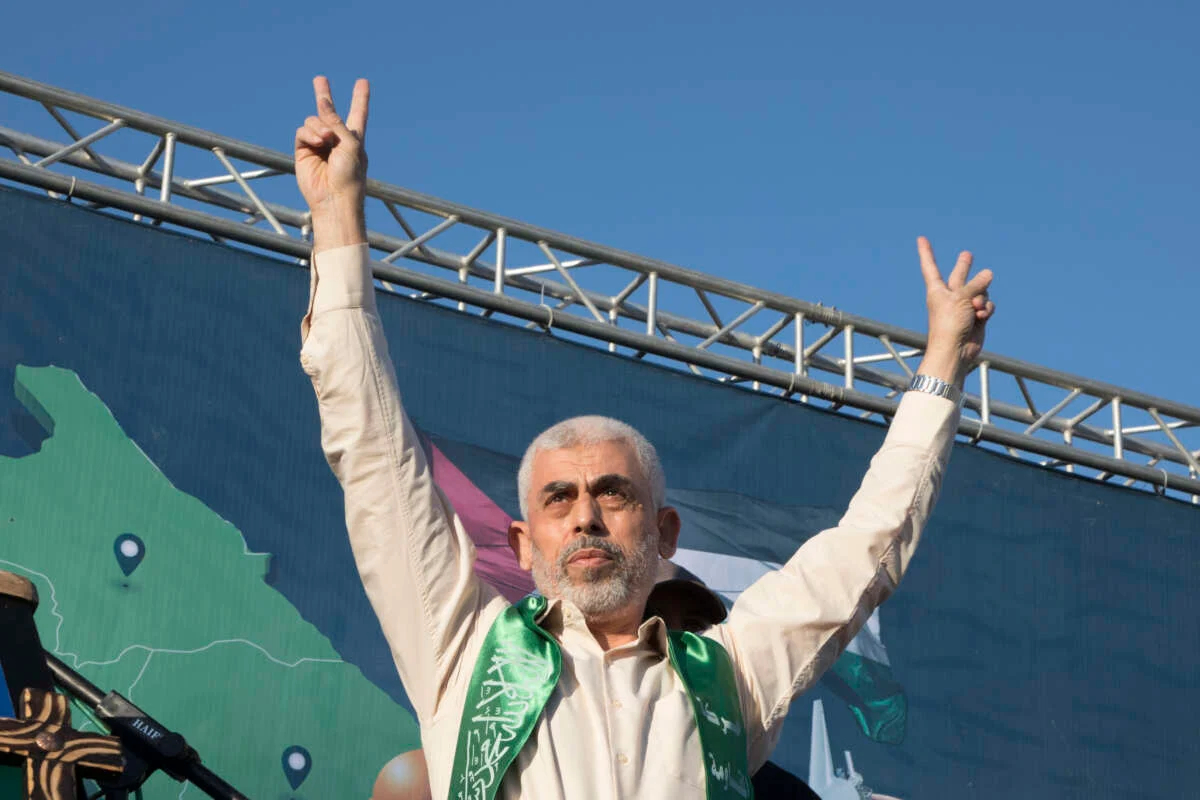
Yahya Sinwar, the head of Hamas’s political bureau in Gaza, was killed during a firefight with an Israeli IDF patrol in the Tel al-Sultan neighborhood in Rafah, which ended when tanks in the area eventually leveled the building he was in.
Sinwar, 61, was a central figure in Hamas’s leadership, who recently took up the position as leader of the political wing of the organization following the assassination of Ismail Haniyeh in Iran earlier this year. Known for his strong stance against Israel and for shaping the group’s armed resistance. His death, confirmed by both Israeli and Palestinian sources, occurred amidst Israel’s ongoing genocide in Gaza.
Sinwar’s death has prompted an outpouring of condolences from various Islamic and revolutionary movements in the region. The Syrian Islamic Council, a prominent religious body, expressed both “pain and pride” in its statement, mourning the “martyrdom of Yahya Sinwar along with a group of his righteous comrades on the proud soil of Gaza, facing the occupation without retreating.”
Similarly, the Ahrar al-Sham movement, a major faction within the Syrian revolution, offered its condolences to the Palestinian people. “We extend our heartfelt sympathies for the martyrdom of the head of the political bureau of Hamas, the martyr Yahya Sinwar,” the group said in a statement.
Prominent figures in Syria also paid tribute to Sinwar, connecting his death to the shared struggles of the Syrian and Palestinian peoples. Dr. Ahmed Muwaffaq Zaidan, a Syrian journalist and political analyst, honored Sinwar’s legacy in a social media post:
“You departed, Abu Ibrahim Yahya Al-Sinwar, standing steadfast like an olive tree. Your departure befits Al-Aqsa and Al-Qassam. May Allah forgive you and raise your rank in the highest heavens.” He continued, reflecting on the shared bond between Syria’s revolution and the Palestinian cause: “The sorrow felt by the Syrian revolutionaries for Sinwar is like the sorrow for their own leaders. The sadness is profound, especially for those who were with us in the beginning.”
Sheikh Abdurahim al-Toun, a Syrian scholar and member of Hayat Tahrir al-Sham (HTS), echoed these sentiments, expressing solidarity with the Palestinian cause: “Congratulations to those whom Allah has granted to the ranks of the martyrs. We ask Allah to replace his home with a better one and compensate the people of Jihad with patience, contentment, and victory.”
Another prominent cleric, Sheikh Abu Zaid Tareq Abu Shanab of Idlib, praised Sinwar’s strategic prowess in defying Israel, stating, “What have you done, Sinwar? You shattered the Iron Dome, and exposed the lies of the Zionist state. Your actions remind us of our strength as a nation that will not submit.”
Notably absent from the wave of regional condolences is the regime of Bashar al-Assad. Despite Hamas’s long-standing ties with Assad, especially before the Syrian Revolution, yet no official condolences were issued Thursday or Friday. This is consistent with the regime’s previous reactions to Israeli assassinations. When Haniyeh was killed in July, Assad was similarly slow to react, a sign of the regime’s reluctant role in the “Axis of Resistance.”
Some political observers believe this silence stems from Hamas’s decision to side with the Syrian revolution during the early stages of the Syrian conflict, leading to a rift between the Assad regime and the Palestinian group. “The Assad regime’s reluctance to mourn Hamas leaders publicly reflects the political distance between them since the Syrian uprising,” said a Middle East analyst. “Despite reconciliation efforts in recent years, there remains significant tension.”
Born in 1962 in the Khan Younis refugee camp, Sinwar became one of Hamas’s most influential leaders. He was instrumental in establishing Hamas’s security wing and played a crucial role in directing the group’s military strategy after being released from an Israeli prison in a 2011 prisoner swap and is credited as one of the architects of the October 2023 Al-Aqsa Flood operations.
Sinwar’s death is expected to have significant repercussions for Hamas, particularly its military wing, the Qassam Brigades. His leadership was seen as vital in unifying the political and military factions of the organization. Despite his loss, Hamas vowed to continue its resistance against Israel.
“Sinwar’s martyrdom will only strengthen our resolve,” said a Hamas spokesperson. “His blood will fuel the fire of resistance.”








